
https://magic.piktochart.com/output/22570726-new-piktochart
A 3.1.2 A Lesson with Ebou
P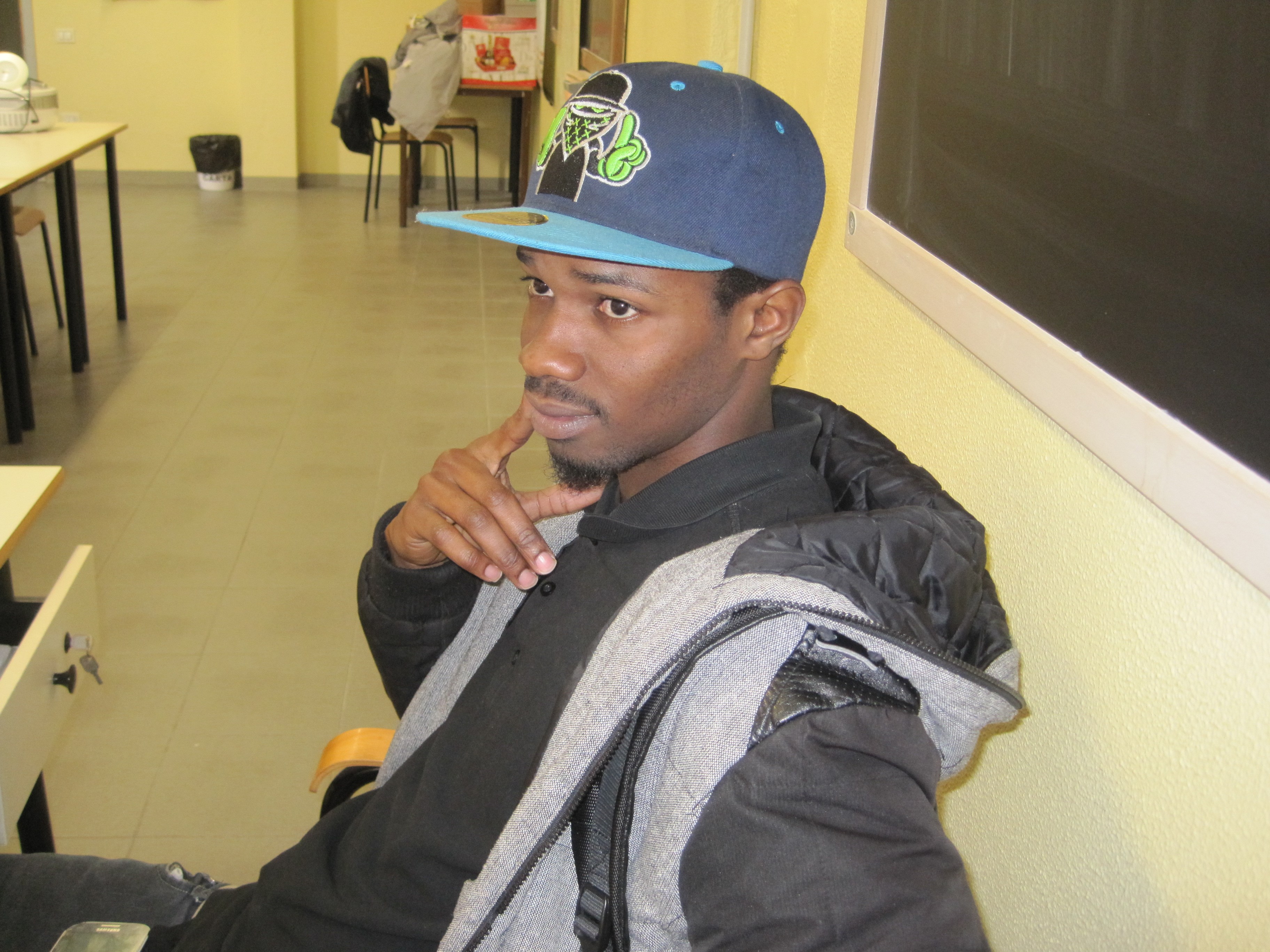 articipants:
articipants:
Monica Moreschi: English language teacher
Ebou: asylum seeker
Students attending non-formal classes of English
Objectives:
- Improving students' knowledge about asylum seekers' migration and giving them the opportunity to practise their English by listening and talking to a native speaker
- using online tools to make the lesson more fun
Description
06/04/2017
Asylum seeker Ebou talked about his experience as a migrant travelling from The Gambia to Italy, giving information on the reasons for his migration and on his journey, as well as on his arrival and his life in Italy.
The students listened to his narration and did a listening comprehension exercise, completing a questionnaire consisting of 13 multiple choice questions. They also asked Ebou some more questions to get the information they needed to complete the questionnaire and to obtain some extra information about his country, his family, and his life in Italy. After that, they answered the questions of the questionnaire online, on https://quizizz.com, where the teacher had uploaded the same questionnaire she had printed and given out. Finally they watched the official video of the song Human, by Rag'n'Bone Man, and completed the lyrics of the song through a gap-fill exercise. The teacher introduced the song, saying that Ebou's words “we're all human beings after all” had reminded her of the song and, after listening to it with Ebou, they had decided that it could be a good idea to finish the lesson with it, in order to have some fun and some more “food for thought”.
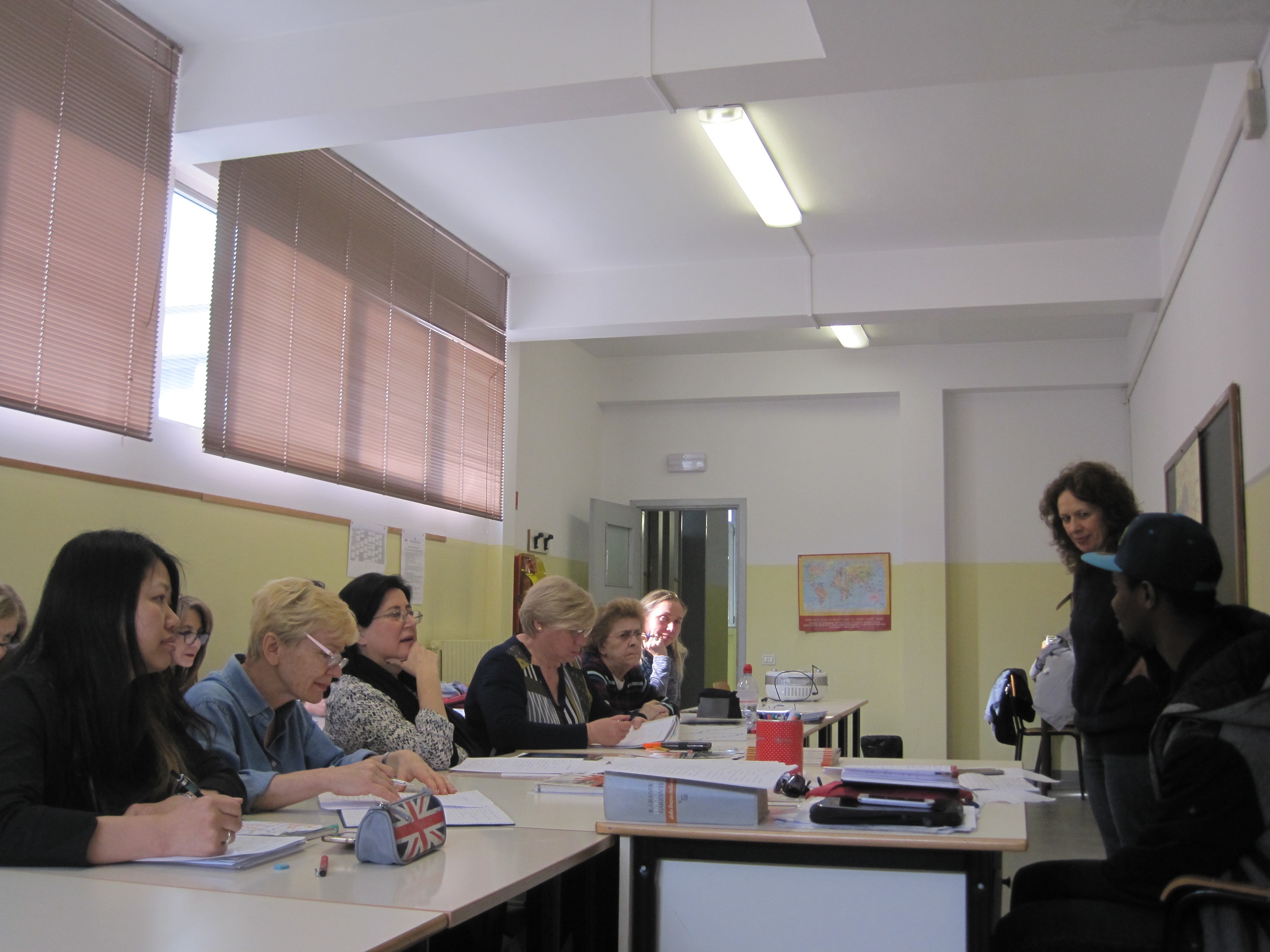

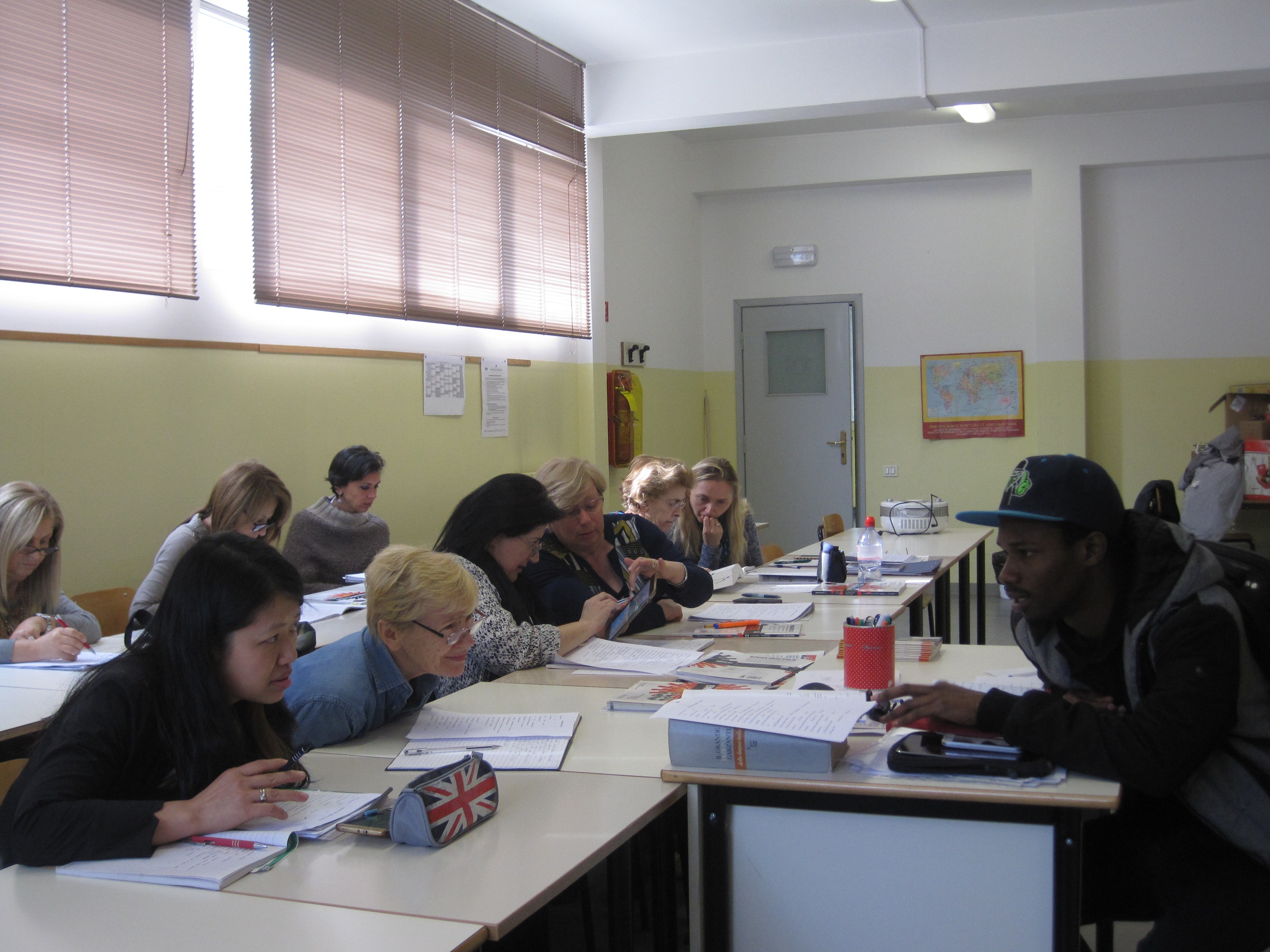
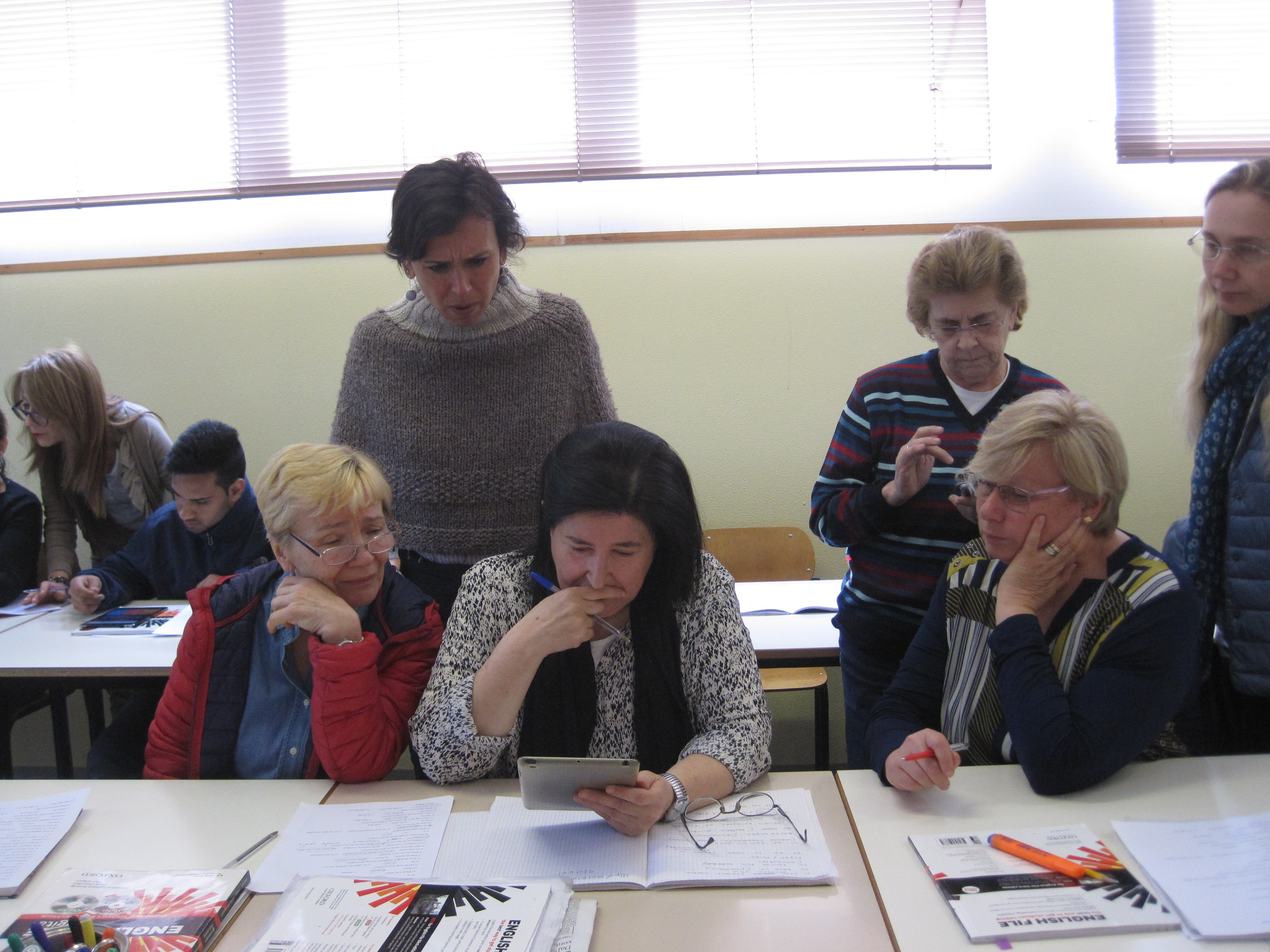
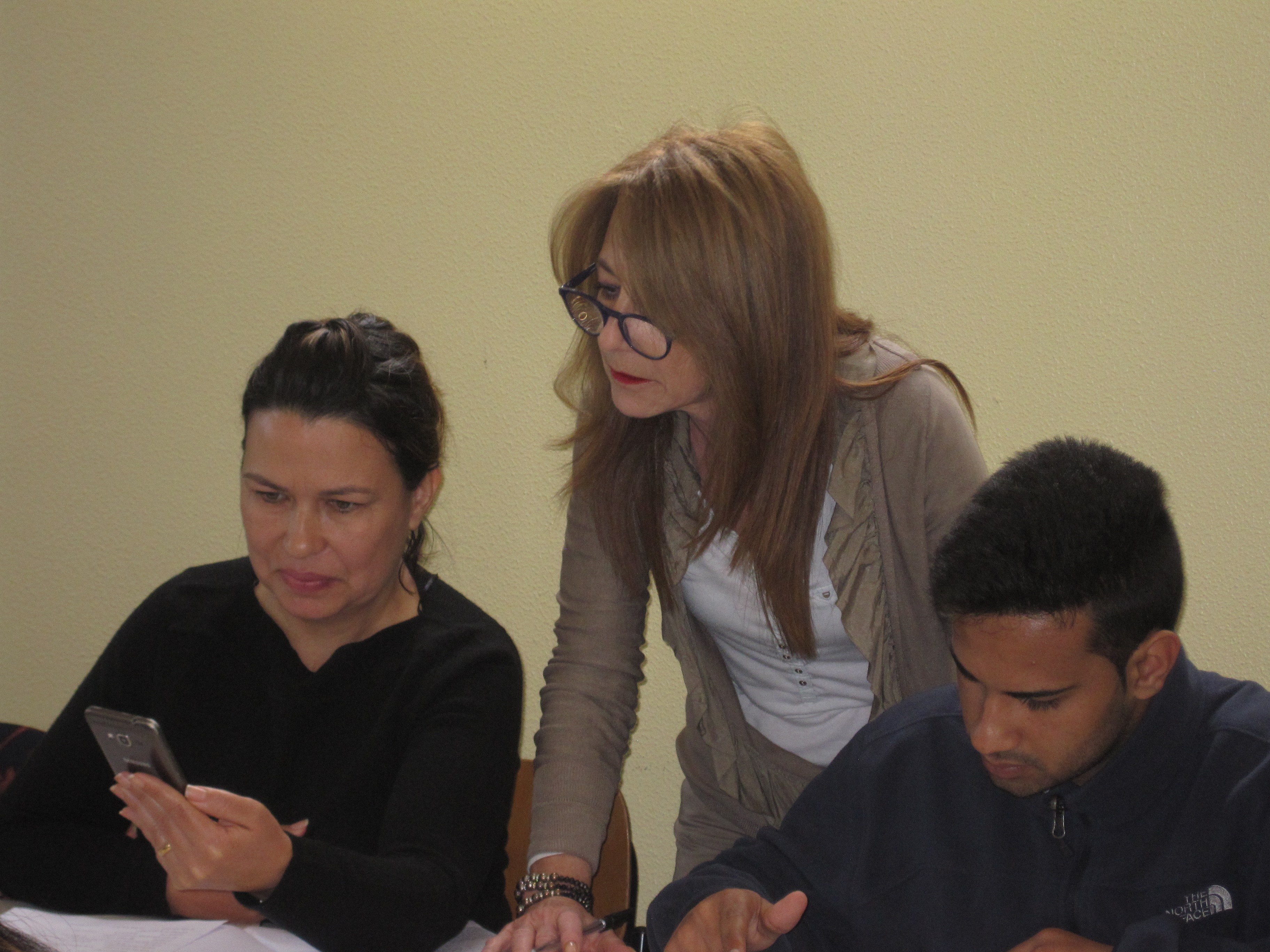
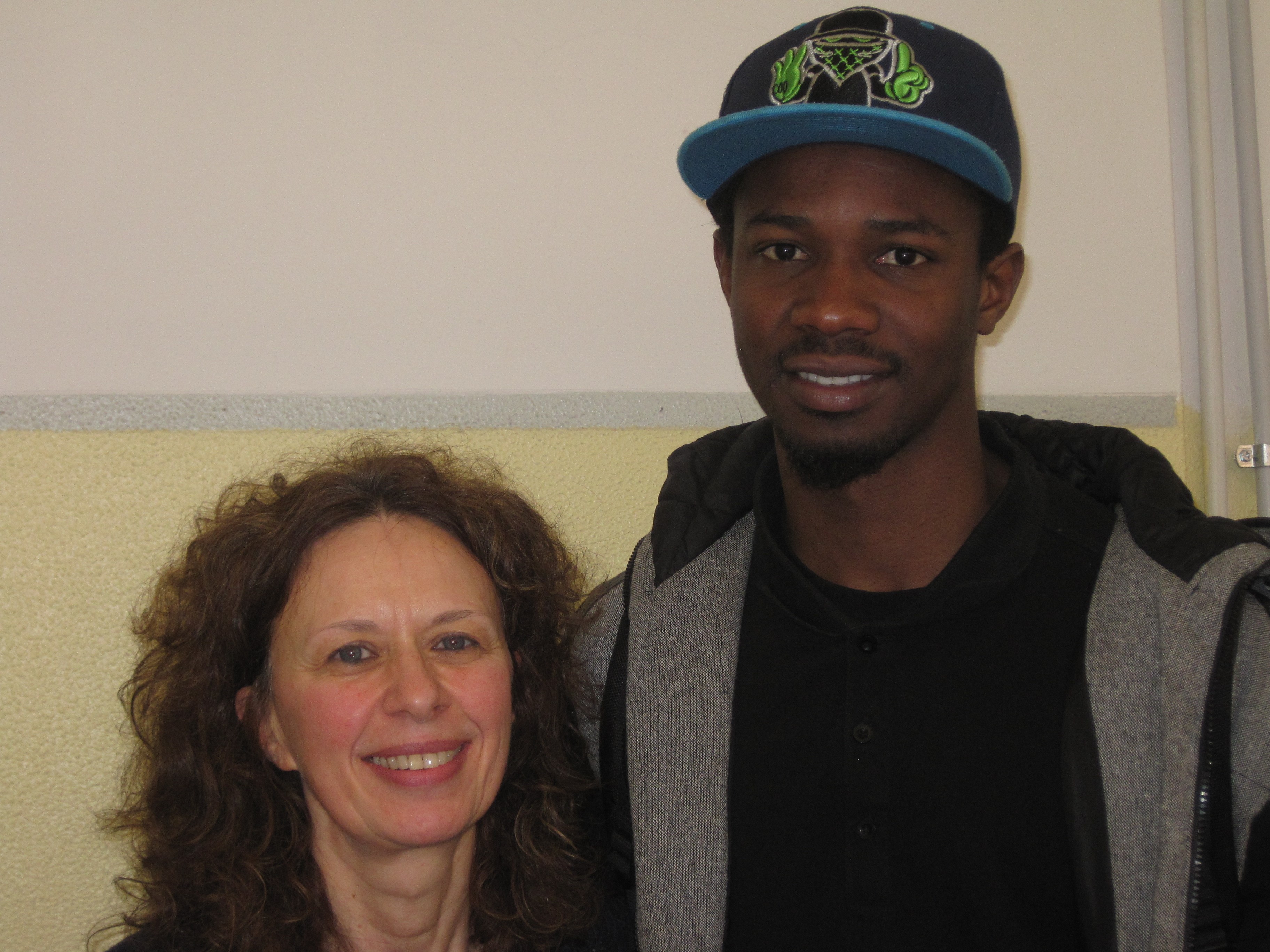


https://quizizz.com/admin/quiz/58e581b25b3d8b843b83201f
https://www.youtube.com/watch?v=L3wKzyIN1yk
20/04/2017
The teacher gave some more information about The Gambia and presented some vocabulary relating to migration and asylum seekers. Then, the students used all the information and vocabulary they had learned during that class and the previous class to do a crossword, given out by the teacher, who had previously created it on https://crosswordlabs.com.
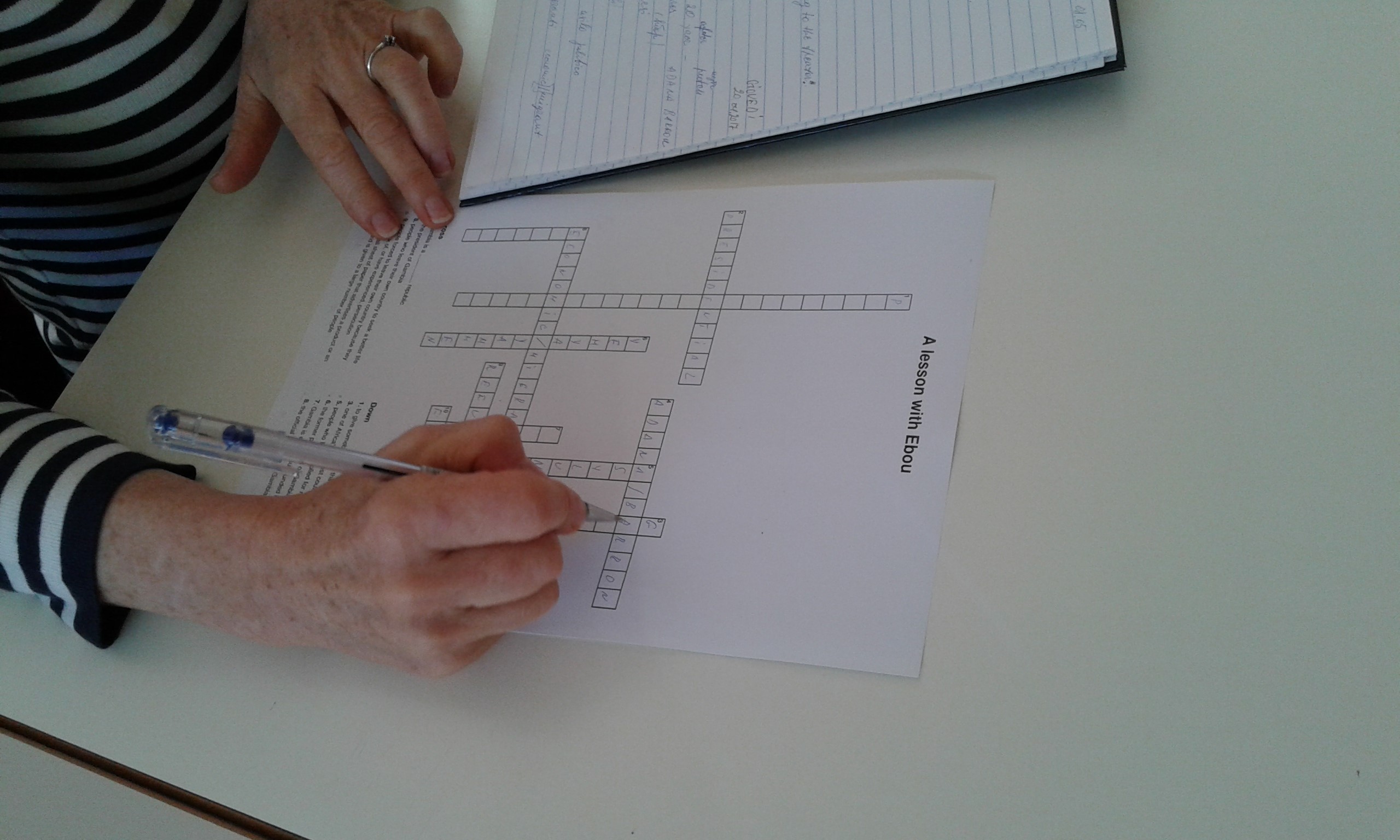

https://crosswordlabs.com/view/a-lesson-with-ebou2
Evaluation
The activity was really useful because it was a good opportunity for students to practise their listening and speaking skills, as well as their reading skills, and because it improved their knowledge about asylum seekers' migration. The results of the questionnaire proved that the students understood the key points of the narration, even if they had to ask some more questions in order to get all the information they needed to answer correctly (only 2 students answered correctly less than 12 questions; all the others gave 12 or 13 correct answers). Besides, the answers they gave at the end of the activity, to the questions about the activity itself, proved that they all found the narration interesting, especially because they could listen to a person who had personally gone through things that they normally get to know by watching the news or reading the newspapers, which is not so extraordinarily real and moving as Ebou's narration. They said that it was difficult to understand everything Ebou said, that's why they sometimes had to ask him or the teacher to repeat more slowly or in other words some parts of the narration. On the other hand, that was also an opportunity to learn some new English words and phrases.
As for the use of quizzes.com, they enjoyed taking part in a sort of competition, but they couldn't do it individually since only some of them had the necessary device to take part, so they did it in small groups and, trying to be quick while answering the questions, they made mistakes they hadn't made in the printed questionnaire. They all enjoyed the song and the crossword.

A 3.1.3 I come from far away
Participants
- Renato Piazza: Italian Language teacher
- Students attending lower secondary school classes, Calvino centre.
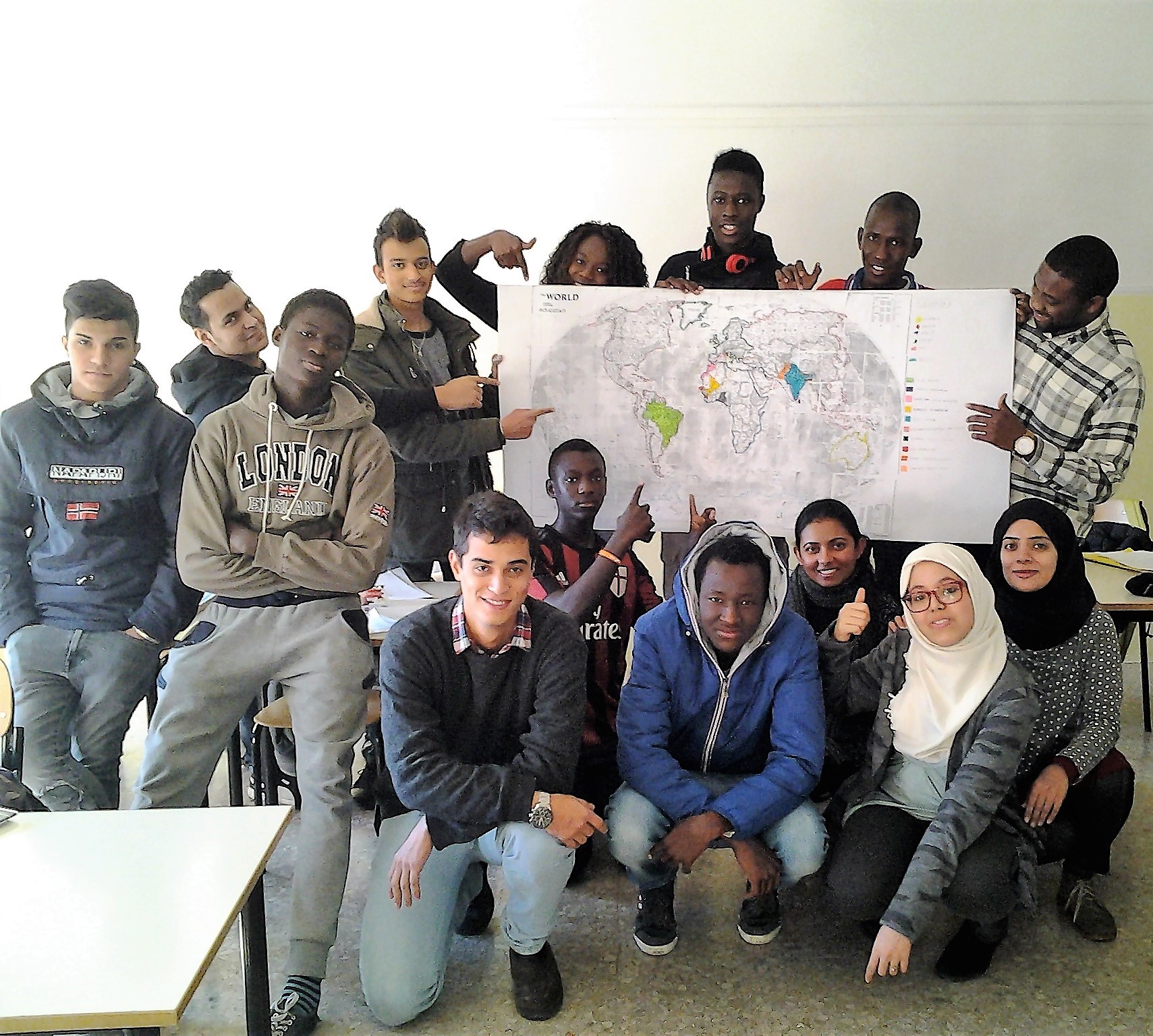
November 2016
Objectives
Sensitizing Italian students to the problems faced by asylum seekers, refugees and other immigrants, during their integration
process into our society; increasing foreign students’ knowledge and awareness of this issue, in order to encourage positive attitudes
among peers, resulting in support to newcomers
Description
To achieve the above-mentioned objectives, the following activities were carried out:
- reading activities dealing with migration journeys, based on true stories written by migrants;
- creation of a world map, on which asylum seekers and refugees could retrace the route they took to get to Italy;
- projection of the photo book “Evros porta orientale d'Europa”, made by Mauro Prandelli, a photographer from Brescia.
http://www.mauroprandelli.com/sito/
http://www.mauroprandelli.com/Evrosportadoriente.html
Evaluation
Though the above-mentioned activities were not formally evaluated, they surely helped teachers foster collaboration among
peers and cooperative learning, which form the basis of our methodological approach, also in relation to future project
activities.
A 3.1.4 My name is Adil
Date: 7th February 2017
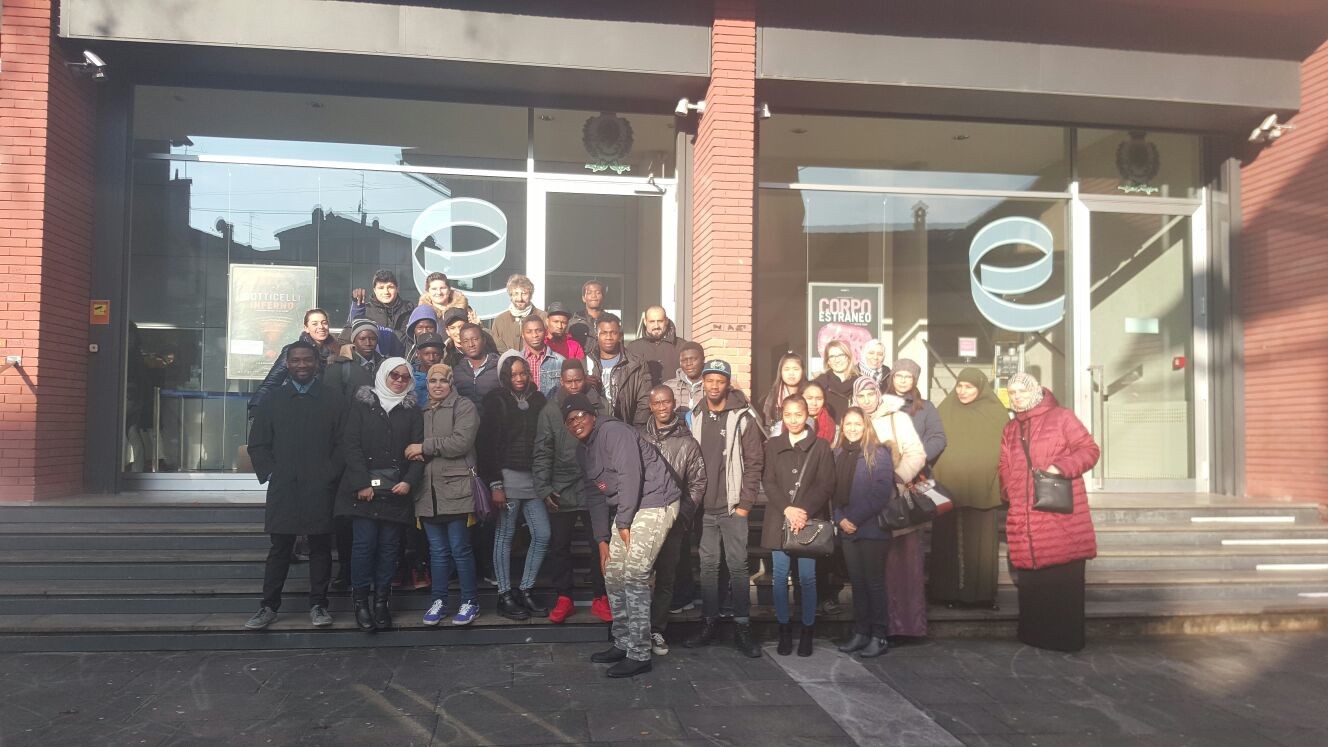
Before the film, group photo of students and teachers in front of Nuovo Eden cinema
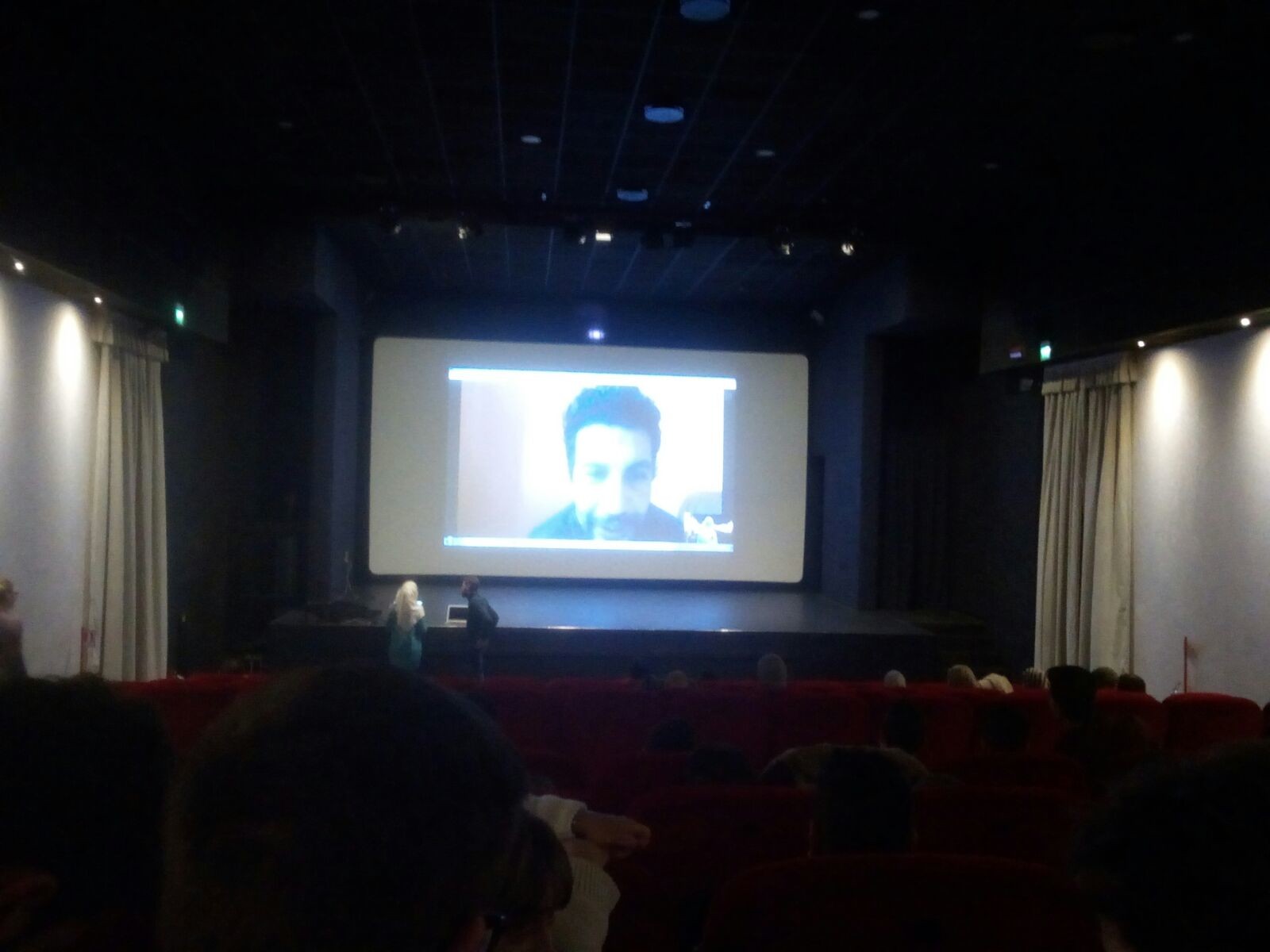
Student Kaoutar Rami talks to the film director about Italian language learning
Participants
- Students attending lower secondary school classes, Calvino centre
- Lower secondary school teachers, Calvino centre
- Film director Adil Azzab
http://www.mynameisadil.com/?page_id=39&lang=it
https://www.facebook.com/mynameisadil.imaginefactory/
- Organizers of activities for students at Nuovo Eden cinema
http://www.nuovoeden.it/
Objectives
- Developing greater awareness about being a migrant
- Sharing difficulties and opportunities concerning the migration experience
- Supporting migrant students through the consideration of a “difficult” migration story followed by “successfull” integration
- Giving value to travelling and migration
- Considering the peculiarities of audiovisual language and its potential in relation to personal memory re-elaboration and autobiographical
narration.
Description
The activity took place at Nuovo Eden cinema, in Brescia. About 30 students watched the film “My name is Adil”, a low budget Italian
independent film, through which film director Adil Azzab tells his story: living his childhood as a country shepherd in Morocco; his journey to Italy
at the age of 13; getting to Italy as an illegal immigrant; living in Milan as a young migrant; his integration into Italian society and the resultant
change in the relationship with his hometown; his getting into the film industry and making the film.
After the film projection, there was a skype video conference involving the film director. The students asked him a lot of questions about the film
and about his life. The young film director, who is also an educator, proved to be extraordinarily willing to answer the questions and very good at
engaging the audience. The questions asked were about: his hometown, the difficulties and the dangers encountered during the journey, Italian
reception, living in Italy at the beginning of his stay, cultural differences, foreign language acquisition, integration process, the making of the film,
aspects of his life which were only partially described in the film, his success, his present life and occupation.
After the film projection, there was a skype video conference involving the film director. The students asked him a lot of questions about the film
and about his life. The young film director, who is also an educator, proved to be extraordinarily willing to answer the questions and very good at
engaging the audience. The questions asked were about: his hometown, the difficulties and the dangers encountered during the journey, Italian
reception, living in Italy at the beginning of his stay, cultural differences, foreign language acquisition, integration process, the making of the film,
aspects of his life which were only partially described in the film, his success, his present life and occupation.
Evaluation
The activity was evaluated through the attached questionnaire.
Collected data
29 questionnaires were given out. 90% of the answers to multiple choice questions were “yes” answers, except for question number 4 (60% of
the students answered “yes”, 20% answered “no”, 20% answered “I don't know”) and question number 9 (80% of the students answered “yes”,
15% answered “no”, 5% answered “I don't know”).
The answers to open questions are interesting.
Question number 5 (film aspects): Adil's life before leaving, especially in relation to the difficult relationship with his violent uncle; his arrival in
Italy and overcoming of encountered difficulties (connected above all with loneliness and foreign language comprehension); full integration
(symbolized by his swim in the sea); his return to Morocco and the film projection in his hometown; “the courageous experiment in telling the
story of his own life” through cinema.
Question number 6 (video conference): almost all the quesions were mentioned, the question that was mentioned the most was the one dealing
with the language, followed by the question about advice for foreign people living in Italy.
Question number 8 (who should watch the film): mainly relatives and friends, but also “newly arrived young people”.

A 3.1.5 Migration and Reception: Italy
Participants
Cristian Poli: Italian language teacher
Carlo Sanna: NGO operator from "Il Mosaico"
Jibril: asylum seeker
Students attending first-level courses, Lumezzane centre
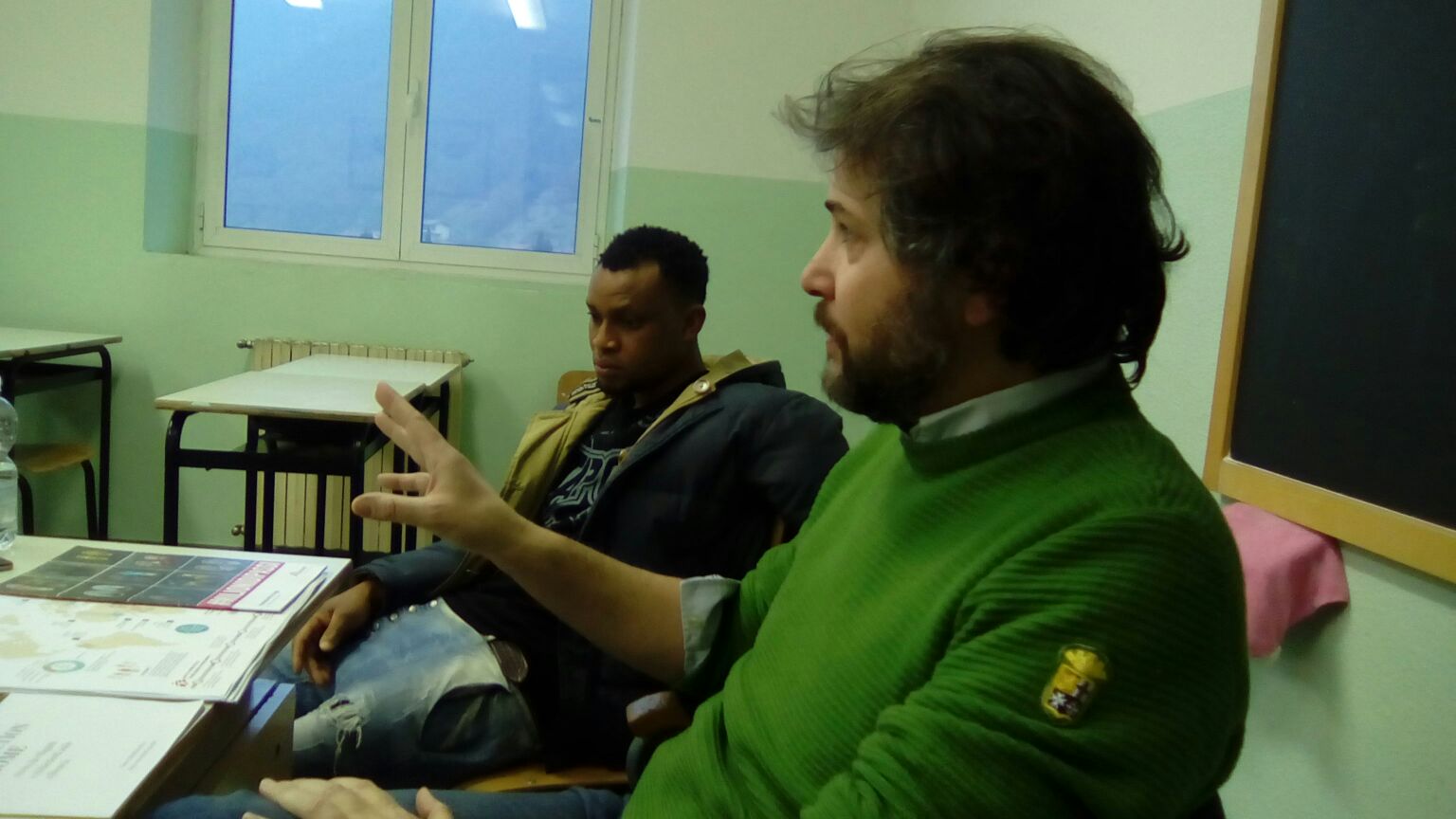
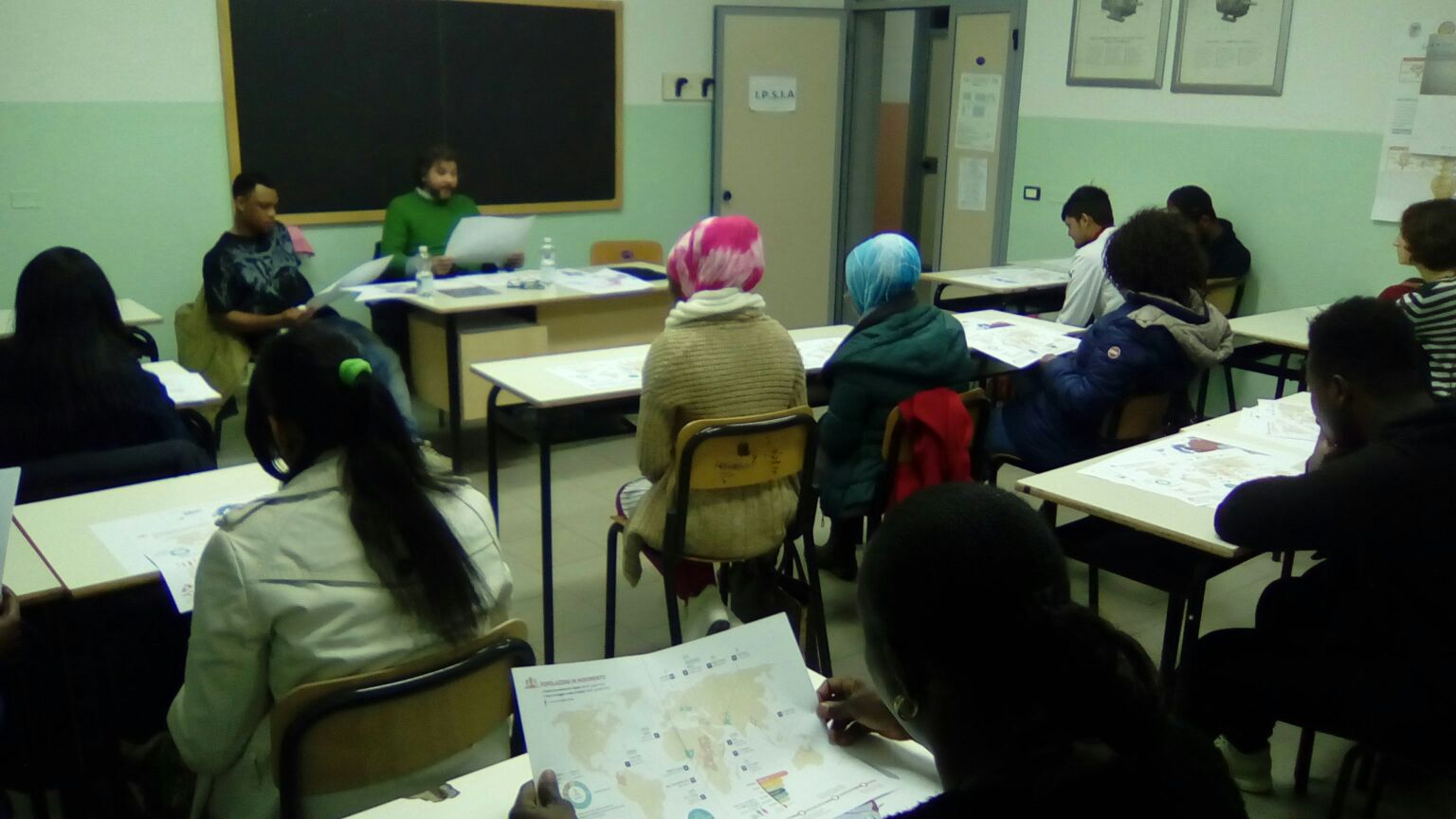
Objectives
- Providing students with information about migrants coming to Italy and the Italian reception system,
taking into account the results of the survey carried out before the activity
- giving the students the opportunity to talk to an asylum seeker and an NGO operator
Description:
NGO operator Carlo Sanna gave the students some statistical information related to migration flows and migration
routes to Italy, and told them about the services provided by NGOs according to the Italian reception guidelines.
Asylum seeker Jibril talked about his experience as an asylum seeker coming from Nigeria and enjoying
the services provided by "Il Mosaico", while waiting for an answer to his application.
Evaluation:
The students' questions and comments proved that the activity was useful, because they improved
their knowledge about migration and reception in Italy, particularly about some aspects they really wanted
to be informed about, for example those related to where asylum seekers live, what they do while
they're waiting for an answer to their application, who pays for their living expenses and
how much money is spent for each of them, what happens if their application is rejected.